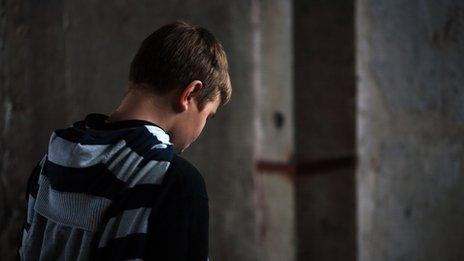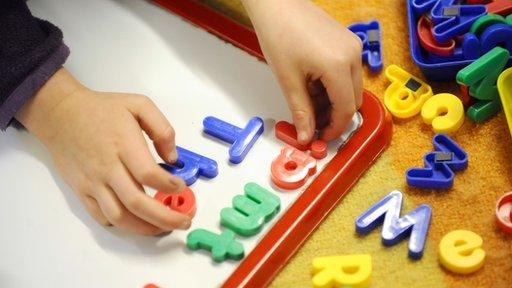Truss: Pupils in poor mental health 'not troublemakers'
- Published

The guidance aims to help schools identify pupils with problems and intervene early
Too many young people with unmet mental health needs are unfairly labelled as troublemakers, says the Education Minister, Elizabeth Truss.
The Department for Education has launched guidance to help schools in England spot mental health issues.
Up a quarter of five- to 16-year olds may have, or be at risk of, mental health problems, says the DfE.
"Teachers are not therapists but they play a vital role in the lives of their pupils," said Ms Truss.
"A healthier happier classroom allows teachers to get on with what they do so well, teaching and inspiring the next generation."
Ms Truss said the guidance would help teachers know exactly what to do and when to act to help a child with problems.
The advice clarifies schools' responsibilities and outlines what they can do to support children or young people "whose behaviour - whether it is disruptive, withdrawn, anxious, depressed or otherwise - may be related to an unmet mental health need".
The DfE says the guidance will also help teachers be more confident in identifying children who are simply behaving badly.
The aim is to help identify families with risk factors and children showing early signs of problems and "intervene early and strengthen resilience before serious mental health problems occur".
"Children exposed to multiple risks such as social disadvantage, family adversity and cognitive or attention problems are much more likely to develop behavioural problems," says the document.
It suggests schools use pupil questionnaires, teacher training toolkits and mental health factsheets to pinpoint pupils who may need help.
They could then be offered counselling in school or referred to child mental health experts in the local NHS.
The document also identifies ways schools can promote positive mental health by developing pupils':
self-esteem
confidence
ability to deal with change
problem solving skills
'Non-stigmatising'
Clear bullying and behaviour policies, discussion of mental health issues in the wider curriculum, peer-mentoring systems and involving parents and carers, are ways of providing a more stable environment for pupils, it says.
Prof Peter Fonagy, head of clinical educational and health psychology at University College London, said "schools are well placed to help troubled youngsters by understanding their individual needs" and offering them "support in a normal, non-stigmatizing environment".
Philip Rush, head of St Peter's High School, Stroud, Gloucestershire, welcomed the guidance "as many pupils may be suffering, sometimes as the result of chronic conditions, sometimes as the result of trauma or tragedy or sometimes as part of wider health issues".
Fran Congdon, head of personal, social and economic education at St Marylebone School, London, said the advice would help schools equip pupils "with strategies to manage their own emotional lives, social pressures and personal goals and obstacles".
- Published21 May 2014

- Published7 May 2014

- Published29 April 2014
.jpg)
- Published18 April 2014

- Published2 April 2014
